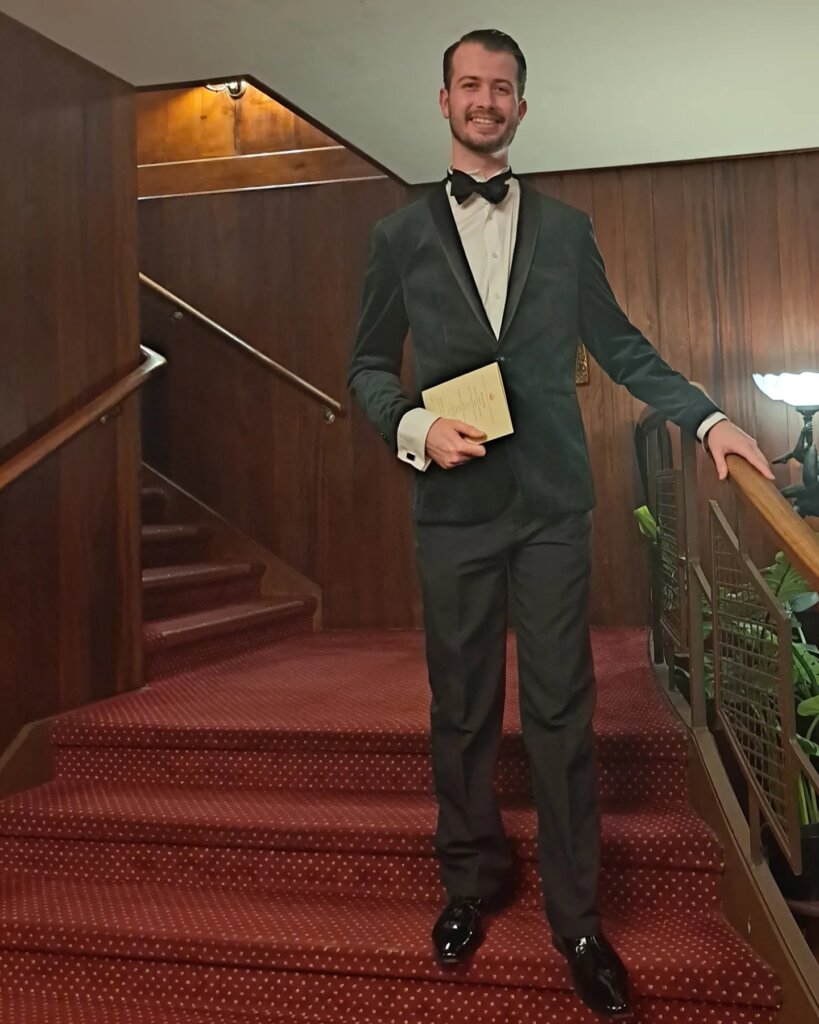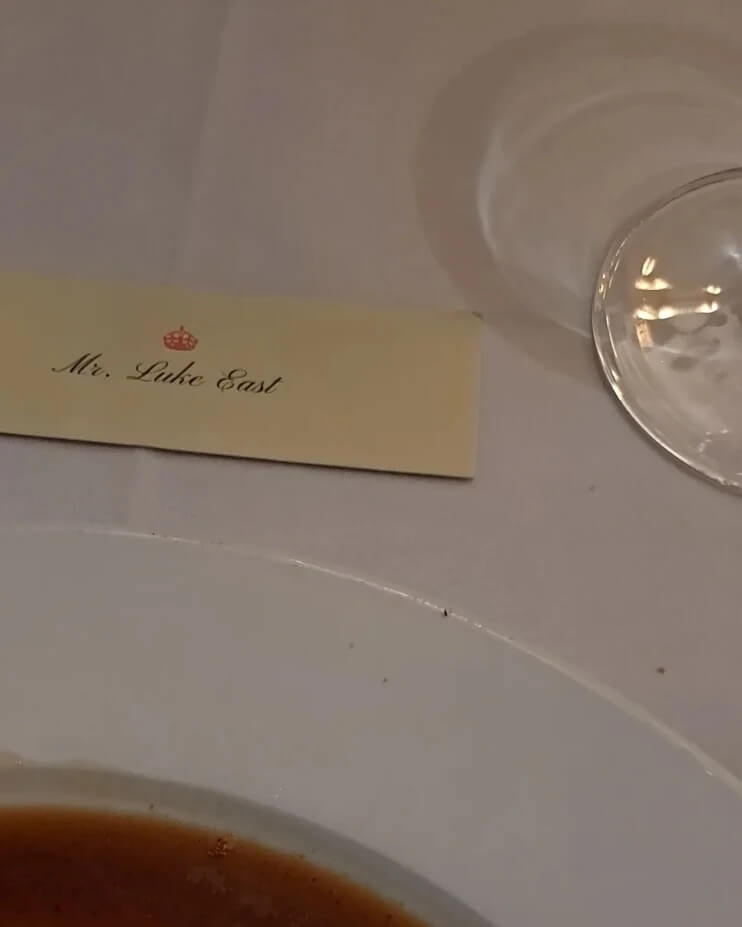
Luke East in Melbourne.
In the centre of the Abbey, on the site where every monarch since William The Conqueror has been crowned, his golden tunic glittering as the world’s media watched – King Charles III was crowned by the Archbishop of Canterbury.
I watched the ceremony with approximately 150 other fervent monarchists who had descended on the exclusive Kelvin Club (founded in 1865) from across the State of Victoria.
As we tucked into our three course dinner, supped our champagne, wine and port, and eagerly listened to the eminent guest speakers it was clear that we each felt the hand of history on our shoulder.
Here we were all full of awe and anticipation for the ancient ceremony that was about to take place almost 17,000km away in Westminster Abbey.
Much has been made in the media about the changing times in which we live and the relevance of monarchy in the modern world – but is our world today really so different from the world in which our King’s mother, the late Queen Elizabeth II, was crowned?
In the 1950s the Commonwealth was just emerging from the shadows of World War II but the pressures of rationing and austerity still lingered on, elsewhere there was still conflict, and the social conventions of the day were evolving from what they had been at the time of the previous coronation in 1937.
 Today our society is also gripped by fiscal pressures driven by austerity and a cost of living crisis, there is war in Europe again, and our society too has evolved somewhat since 1954 – but none of this makes the role of monarchy any less significant. Our monarchy can be traced back over 1000 years, never in that time has it stood unchanging – what we have already seen in this new Carolean Era is the adaptation of monarchy to the modern world.
Today our society is also gripped by fiscal pressures driven by austerity and a cost of living crisis, there is war in Europe again, and our society too has evolved somewhat since 1954 – but none of this makes the role of monarchy any less significant. Our monarchy can be traced back over 1000 years, never in that time has it stood unchanging – what we have already seen in this new Carolean Era is the adaptation of monarchy to the modern world.
If anything, I would argue that given our rapidly changing times, the stability and continuity offered by monarchy is needed more than ever and with King Charles III at the helm we have the right monarch for the moment. Her Late Majesty led us through change and turmoil and made the institution of monarchy more accessible to the public and more relevant to the modern world, her son and successor has shown he has the vision and energy to take the monarchy forth in this ever-changing world and build on his mother’s legacy to keep the monarchy relevant.
The ceremony we saw on Saturday was the very embodiment of our modern monarchy, yet also retained the core elements that hark back over 1000 years.
Every Commonwealth nation, culture and religion was in some way represented in the coronation of King Charles III – he is a man who has committed much of his life to addressing inequality and inequities in our society and so it was fitting that his coronation was as joyful and welcoming as he is himself. It is also no surprise that the day before this momentous occasion the King went onto the Mall to meet the crowds, he is after all very much a people person and a man who has dedicated his life to serving and connecting with the people of this nation and the wider Commonwealth.
While New Zealand’s celebrations for this coronation were hardly comparable with those of 1954, the monarchy remains as relevant to us today as it did all those years ago.









